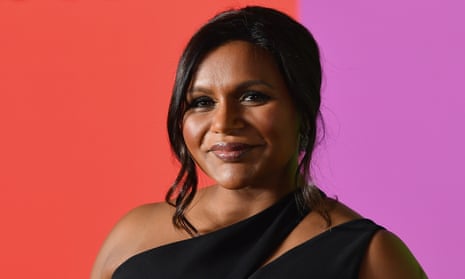I have a complicated relationship with Mindy Kaling. I’ll watch pretty much everything she makes, and eagerly, but not without disappointment. While her more recent productions – Four Weddings and a Funeral, a Hulu series and remake of the 90s movie – navigate culture and identity fairly well, I felt like Kaling spent many years seemingly scrubbing her Indian identity from her projects, which were staffed almost exclusively by white writers and producers.
I feel similarly about presidential candidate Kamala Harris, who is black and Indian. On the one hand, Harris gave me goosebumps when she took Jeff Sessions, the former attorney general, to task in 2017, or in her sharp and candid dialogue with then supreme court nominee Brett Kavanaugh. On the other hand, she’s a cop, one whose agenda has sometimes clashed with the needs of brown and black communities.
In either case, neither of these women have consistently upheld or recognized their Indian identity in any significant or public way, or looked out for the south Asian community. That is, until now.
In a video-slash-PR-stunt released on their social media counts on Monday, Harris and Kaling teamed up to make masala dosas and talk about their immigrant parents, Indian food, and Besant Nagar, a neighborhood in Chennai where Kaling’s father and Harris’s mother hail from.
Who else keeps their spices in Taster’s Choice jars? ⁰⁰Turns out @MindyKaling and I have more in common than we initially thought.
— Kamala Harris (@KamalaHarris) November 26, 2019
WATCH: https://t.co/hqqL2oYb3d pic.twitter.com/9dgQUjKeZF
If there’s something that can melt my skeptical heart here, it’s freaking masala dosa. I take umbrage with Kaling’s description of this all-time favorite fare as “sourdough crepe”, but she makes it better than I do, so I’ll bite my tongue. The truth is, even if Kaling and Harris aren’t the perfect leaders, this video is proof of a type of progress that our immigrant parents probably couldn’t have imagined when they moved to the country.
As actor and advocate Kal Penn tweeted in a note to his 12-year-old self: “One day, one of the funniest people on TV will cook a meal with a progressive US senator who happens to be running for president, and they’ll both be strong Indian American women.”
At its best, Kaling – who has been increasingly posting videos of her cooking Indian food in recent years – and Harris chat about childhoods that are remarkably resonant for those of us who grew up in similar households. As her father walks through her front door, Kaling talks about sneaking out with her cousins to eat meat out of view of her strict vegetarian grandparents. Harris remembers how the family dog was fed rice and yogurt.
But, as any celebrity-politician setup goes, it gets cringey, too: “You look like the entire one-half of my family,” Harris tells Kaling. And the word Indian is employed approximately 1,409 times to really drive home the point of shared identity.
As we watch Harris struggle to protect her flagging campaign, it’s clear why turning to Kaling, and dosas, is important. Not only does the audience skew young and female, but the south Asian vote is 1.3 million people strong, and voter turnout among Asian Americans as a whole has sharply increased in the past decade, according to the Brookings Institution.
Meanwhile, the pool of south Asians engaged in politics is notable. Gone are the days of the occasional Bobby Jindal. Now, Washington congresswoman Pramila Jayapal is a progressive leader, and California congressman Ro Khanna represents a diverse district encompassing some of the biggest immigrant and labor issues of our time.
It makes sense, then, that we land here, in Kaling’s kitchen, figuring out whether or not cashews and peas belong in the masala, with Harris protesting, “just don’t call me auntie”. Because, as Kaling says, there is something about watching Harris on the presidential stage, despite misgivings about her potential or her politics.
She’s the kind of candidate that has the Indian diaspora meeting in the grocery store or on Twitter and reminding each other: “You know she’s Indian, right?”
